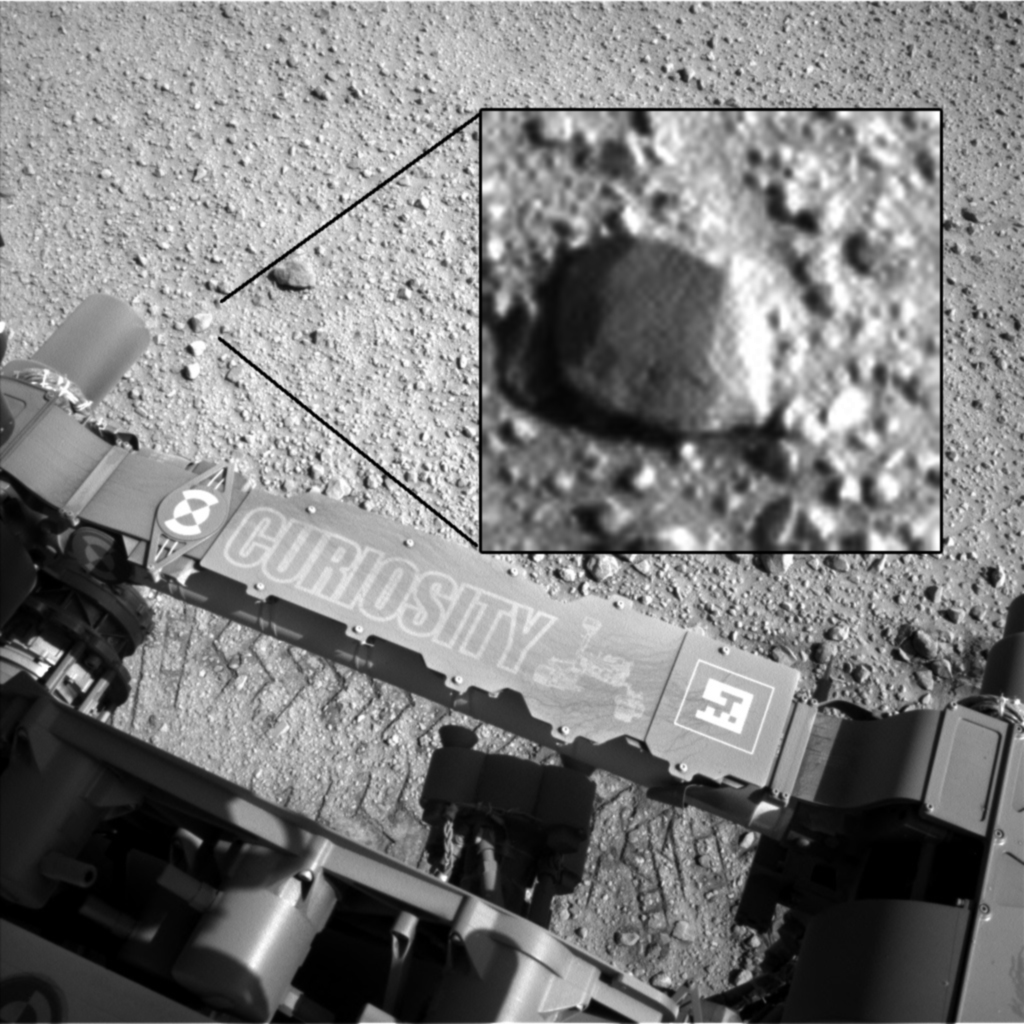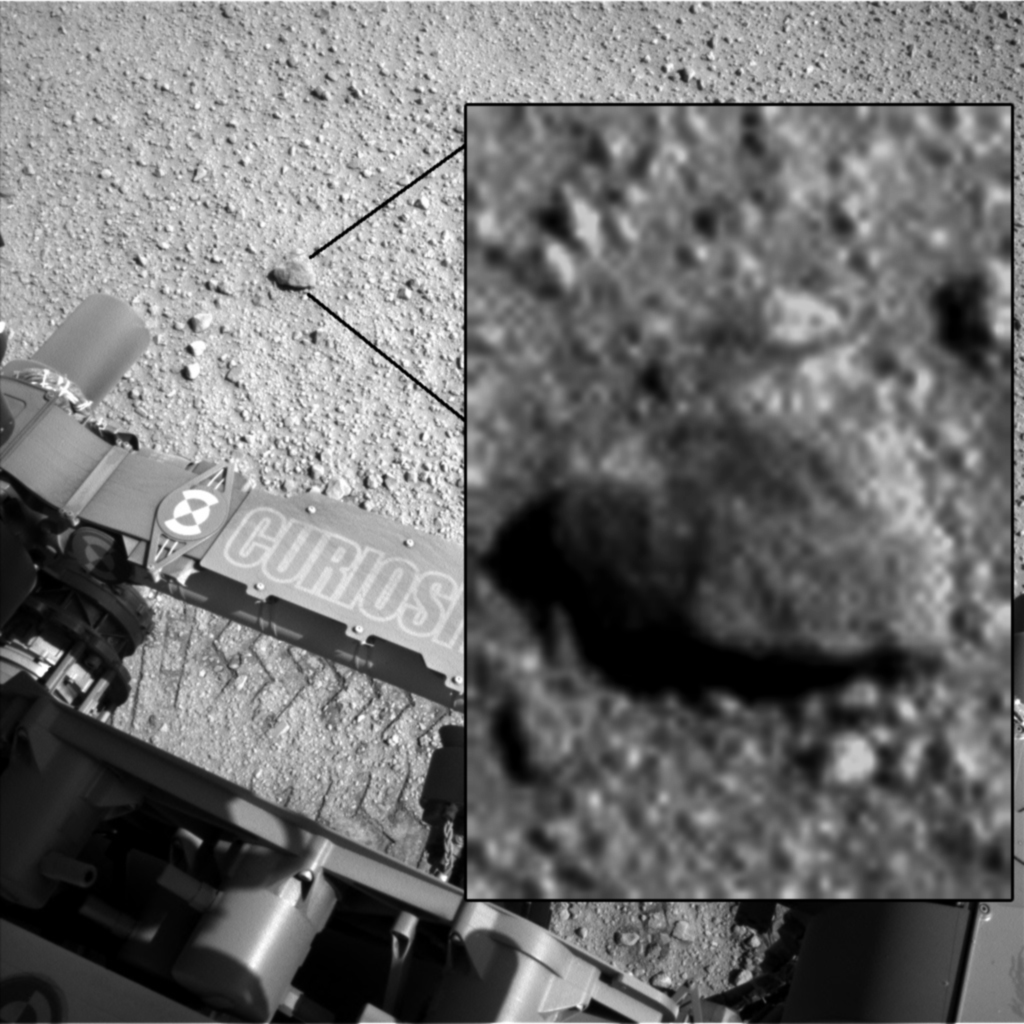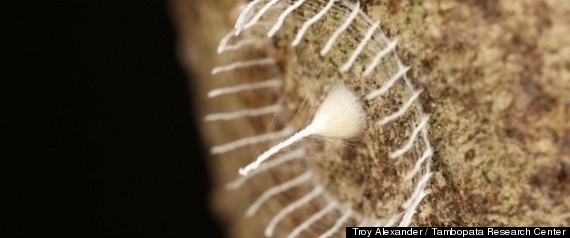It looks like you're using an Ad Blocker.
Please white-list or disable AboveTopSecret.com in your ad-blocking tool.
Thank you.
Some features of ATS will be disabled while you continue to use an ad-blocker.
share:
reply to post by Char-Lee
with a bit of contrast adjustment

doesn't look to much to me after the adjust , but I see the little mushroom on your cropped
funBox
with a bit of contrast adjustment

doesn't look to much to me after the adjust , but I see the little mushroom on your cropped
funBox
Char-Lee
Can you see the spot I enlightened? Bottom left...Is the florescent red spot a pixel thing?
"Florescent red spot"?
On a greyscale image?

ArMaP
funbox
indeed but an extremophile maybe able to work with minimal water or it maybe so extreme , like a cactus, being able to survive, we have many examples here on earth of cold blooded animals living in arid areas, living off morning dues some of them, something which may have been pointed out a few times in this thread , (markings on the rover)
Yes, I just think that, if things on Mars got more difficult in a relatively short time, it would be easier for life to adjust while following the conditions to which they were used, so if they were used to water they would follow it while adapting.
life finds a way , extinction events happen , *waves at the dinos* but the atmosphere didn't dwindle away for life back then , it wasn't as extremer change as it is the case for mars , if life was there before the cataclysm , and had to deal with harsher conditions , would the mutations be , equally as extreme , in its bid for survival ?
Maybe the thinner atmosphere would produce quicker evolution because of more mutations, I know nothing about that.
would be interesting to hear an expert opinion on this , does mars have an ozone layer ? is the bombardment of radiation from the sun in the extreme too?
funBox
ArMaP
Char-Lee
Can you see the spot I enlightened? Bottom left...Is the florescent red spot a pixel thing?
"Florescent red spot"?
On a greyscale image?
Honest yes... I see fluorescent red spots. Guess my magnifying glass causes the effect.
Nope went back and opened picture again, I can still see the red with my bare eyes.
edit on 14-3-2014 by Char-Lee because: (no reason
given)
funbox
would be interesting to hear an expert opinion on this , does mars have an ozone layer ?
I don't think so, as ozone is a result of the transformation of oxygen by radiation or electricity discharge, and oxygen is not that common on Mars.
is the bombardment of radiation from the sun in the extreme too?
As the atmosphere is much thinner that the Earth's atmosphere, radiation is stronger, but Mars is also farther away from the Sun, getting less radiation.
funbox
reply to post by Char-Lee
with a bit of contrast adjustment
doesn't look to much to me after the adjust , but I see the little mushroom on your cropped
funBox
Interesting rock fun but no mine was left some of that one.
Char-Lee
Honest yes... I see fluorescent red spots. Guess my magnifying glass causes the effect.
Using a magnifying glass on a computer screen is asking for problems, as you will probably see the individual elements that make up the pixels, one element for each colour of the RGB system.
I never understood why people using magnifying lens on computer screens.

reply to post by ArMaP
To help see small things
I never understood why people using magnifying lens on computer screens.
To help see small things
ArMaP
Char-Lee
Honest yes... I see fluorescent red spots. Guess my magnifying glass causes the effect.
Using a magnifying glass on a computer screen is asking for problems, as you will probably see the individual elements that make up the pixels, one element for each colour of the RGB system.
I never understood why people using magnifying lens on computer screens.
HAHA this is so funny! it was ON my screen.
reply to post by ArMaP
The show said they changed, they used to eat.
The show said they changed, they used to eat.
Solar rays nourish essential, algae-like organisms called zooxanthellae, which live symbiotically in the jellies’ tissues and provide their hosts with energy as a byproduct of their photosynthesis
ArMaP
Char-Lee
Honest yes... I see fluorescent red spots. Guess my magnifying glass causes the effect.
Using a magnifying glass on a computer screen is asking for problems, as you will probably see the individual elements that make up the pixels, one element for each colour of the RGB system.
I never understood why people using magnifying lens on computer screens.
It is the best i can do and then I rely on everyone else to tell me is I am seeing what I think or not.
reply to post by Char-Lee
That makes more sense, it's the zooxanthellae that use the Sun.
Thanks for the interesting story.
That makes more sense, it's the zooxanthellae that use the Sun.
Thanks for the interesting story.
reply to post by ArMaP
I suppose it depends on how effective an atmosphere is at blocking the sun radiation.. and the magnetosphere ? doesn't this play a massive role in blocking solar radiation , how would these kind of radiation events effect an unprotected marsimal I wonder ?
funBox
I suppose it depends on how effective an atmosphere is at blocking the sun radiation.. and the magnetosphere ? doesn't this play a massive role in blocking solar radiation , how would these kind of radiation events effect an unprotected marsimal I wonder ?
funBox
funbox
I suppose it depends on how effective an atmosphere is at blocking the sun radiation.. and the magnetosphere ?
No magnetosphere on Mars, at least as far as I know.
doesn't this play a massive role in blocking solar radiation , how would these kind of radiation events effect an unprotected marsimal I wonder ?
Only part of the radiation, ultraviolet light, for example, is not affected by the magnetosphere.
But once life establishes itself somewhere it does all it can to remain there, like those bacteria that live in Chernobyl and that use melanin to absorb the radiation like plants use chlorophyll.
reply to post by Char-Lee
my brains not with it tonight

and I thought the mushroom was a momentary glitch in the matrix
funbox
my brains not with it tonight

and I thought the mushroom was a momentary glitch in the matrix
funbox
reply to post by ArMaP
www.space.dtu.dk...
Interesting one here
Almost every planet has a magnetosphere, from Earth to Jupiter to small Mercury. This tour explores the magnetosphere of Mars.
www.windows2universe.org...
www.space.dtu.dk...
The magnetosphere of Mars is far simpler and less extensive than that of the Earth. A magnetosphere is a kind of shield that prevents charged particles from reaching the planet surface. Since the particles borne by the solar wind through the Solar System are typically electrically charged, the magnetosphere acts as a protective shield against the solar wind.
Interesting one here
Almost every planet has a magnetosphere, from Earth to Jupiter to small Mercury. This tour explores the magnetosphere of Mars.
www.windows2universe.org...
funbox
reply to post by Char-Lee
my brains not with it tonight
and I thought the mushroom was a momentary glitch in the matrix
funbox
Sooo this is where that thing came from they couldn't figure out!

Weird 'Web' Found In Peruvian Amazon Baffles Scientists
A bizarre-looking web structure has been found in the Peruvian Amazon, and apparently nobody knows what it is, not even scientists.
www.huffingtonpost.com...
edit on 14-3-2014 by Char-Lee because: (no reason given)
new topics
-
Spiritual Solstice
Short Stories: 27 minutes ago -
'Mass Casualty event' - Attack at Christmas market in Germany
Mainstream News: 10 hours ago
top topics
-
'Mass Casualty event' - Attack at Christmas market in Germany
Mainstream News: 10 hours ago, 26 flags -
Biden Nationalizes Another 50,000+ Student Loans as He Heads for the Exit
US Political Madness: 15 hours ago, 8 flags -
Search to Resume for MH 370
Disaster Conspiracies: 13 hours ago, 4 flags -
Sue Gray, Sir Keir Starmer's former Chief of Staff, Nominated for Peerage
Regional Politics: 14 hours ago, 3 flags -
Spiritual Solstice
Short Stories: 27 minutes ago, 0 flags
active topics
-
'Mass Casualty event' - Attack at Christmas market in Germany
Mainstream News • 92 • : angelchemuel -
Why isn't Psychiatry involved?
Social Issues and Civil Unrest • 27 • : GENERAL EYES -
Smartest Man in the World Tells His Theory About What Happens At Death
Philosophy and Metaphysics • 51 • : whereislogic -
An Interesting Conversation with ChatGPT
Science & Technology • 30 • : GENERAL EYES -
Spiritual Solstice
Short Stories • 0 • : Naftalin -
Drones everywhere in New Jersey ---and Elsewhere Master Thread
Aliens and UFOs • 205 • : GENERAL EYES -
-@TH3WH17ERABB17- -Q- ---TIME TO SHOW THE WORLD--- -Part- --44--
Dissecting Disinformation • 3771 • : 777Vader -
Democrat Governors Hold Emergency Meeting With President Biden to Assess His Mental State.
2024 Elections • 119 • : TruthJava -
I have a friend. . .
General Chit Chat • 23 • : MRTrismegistus -
On Nov. 5th 2024 - AMERICANS Prevented the Complete Destruction of America from Within.
2024 Elections • 161 • : WeMustCare

